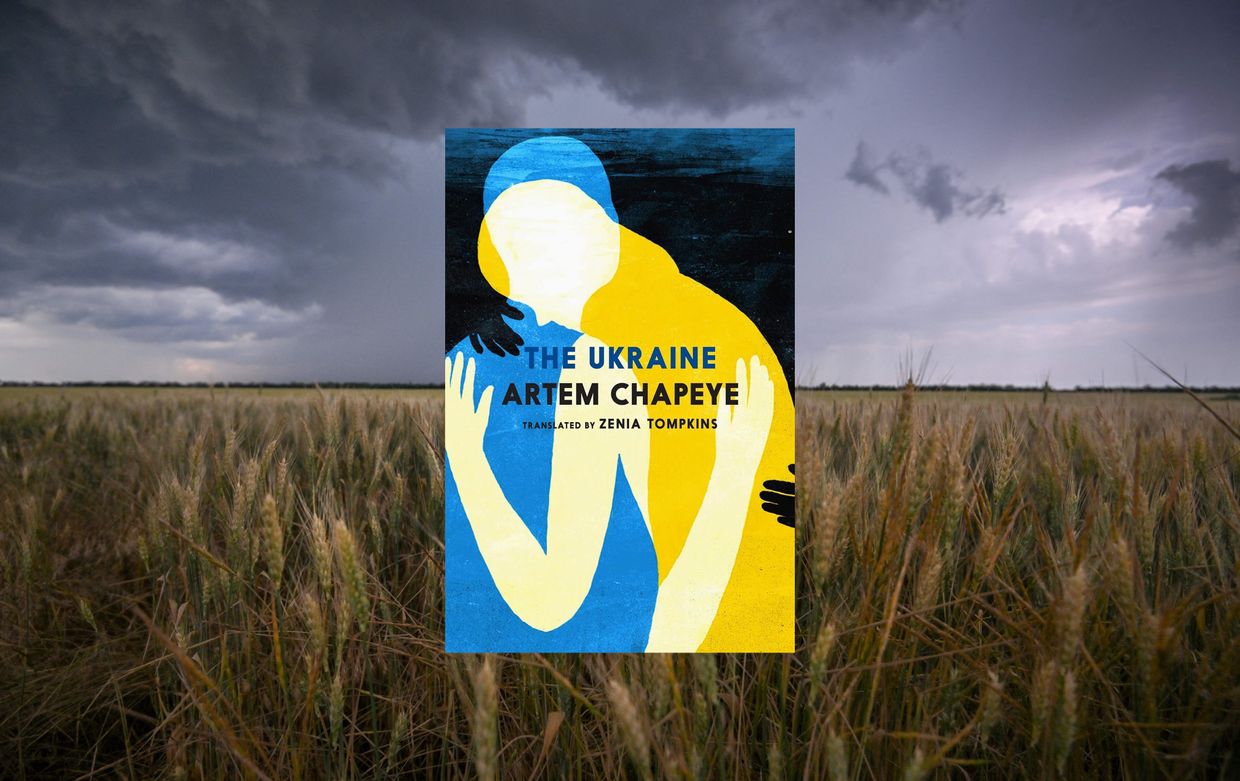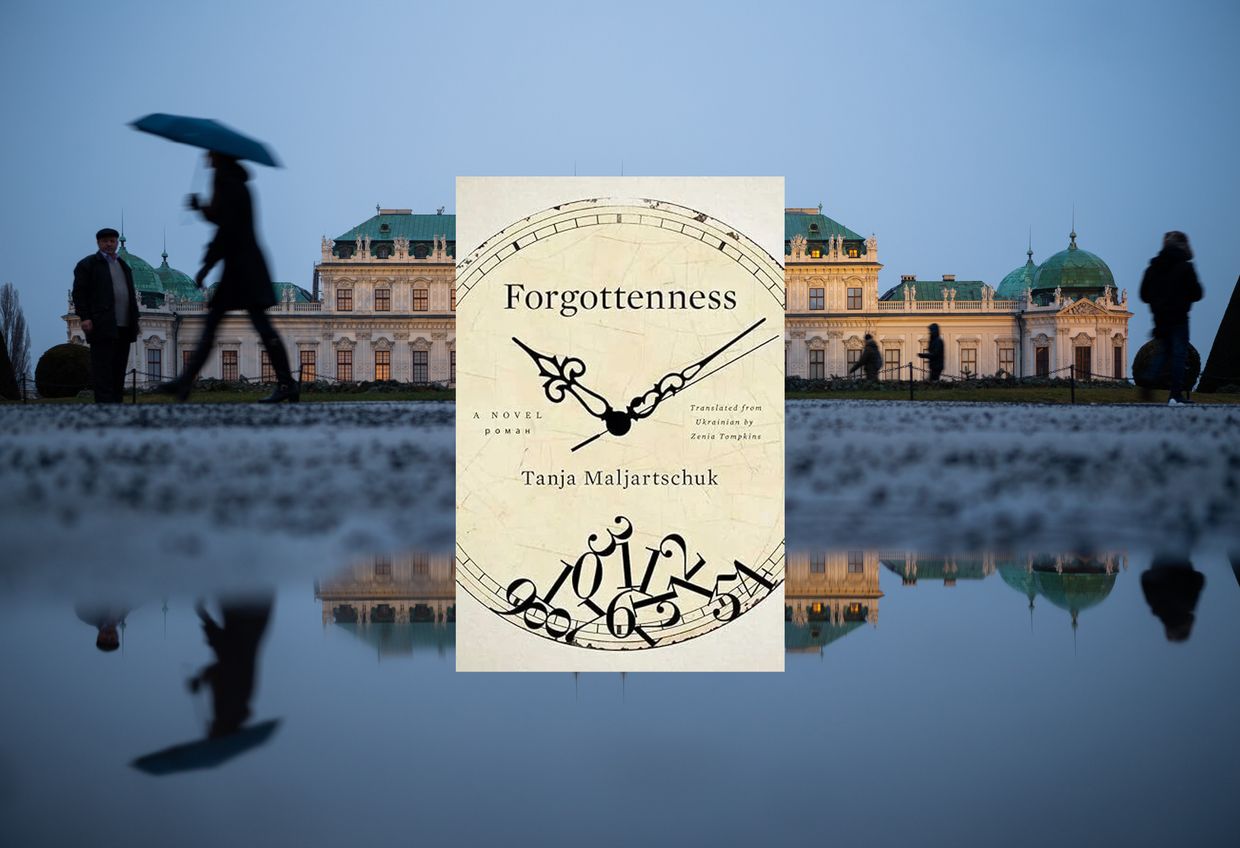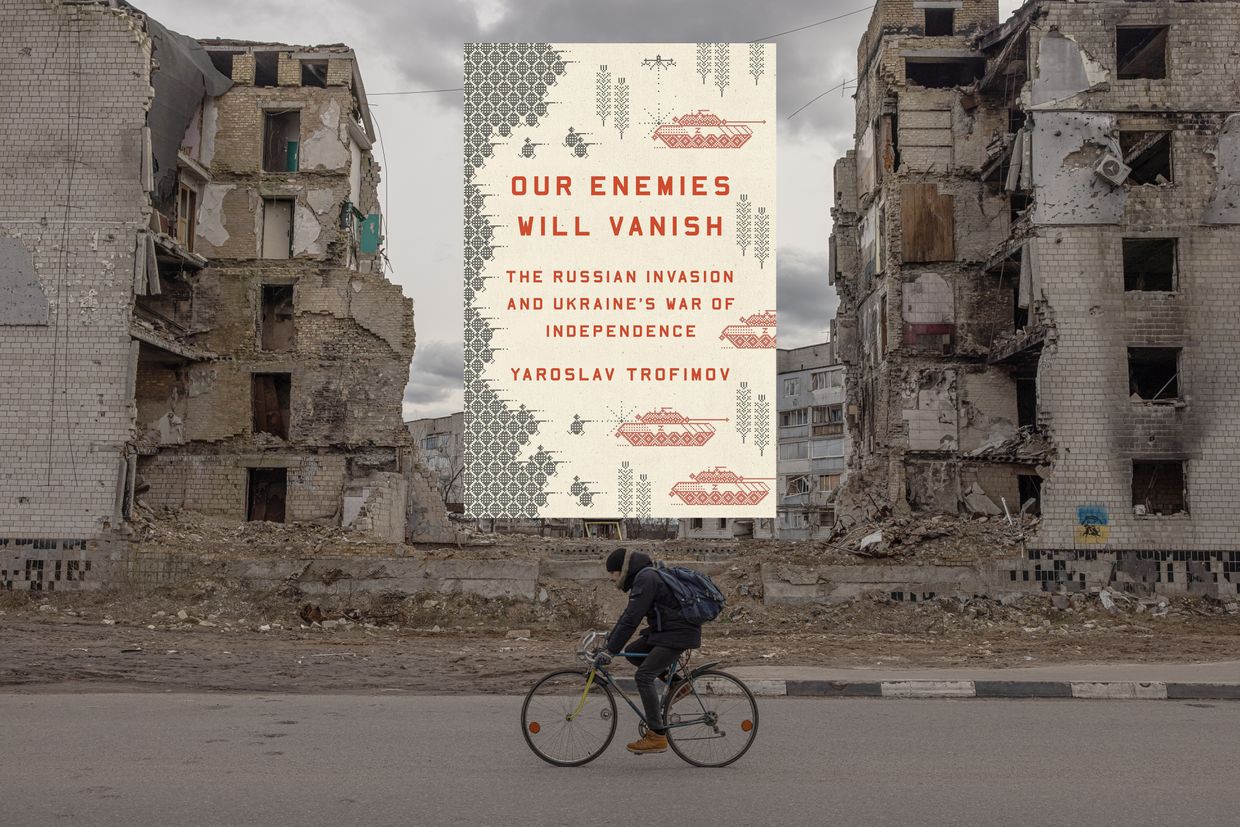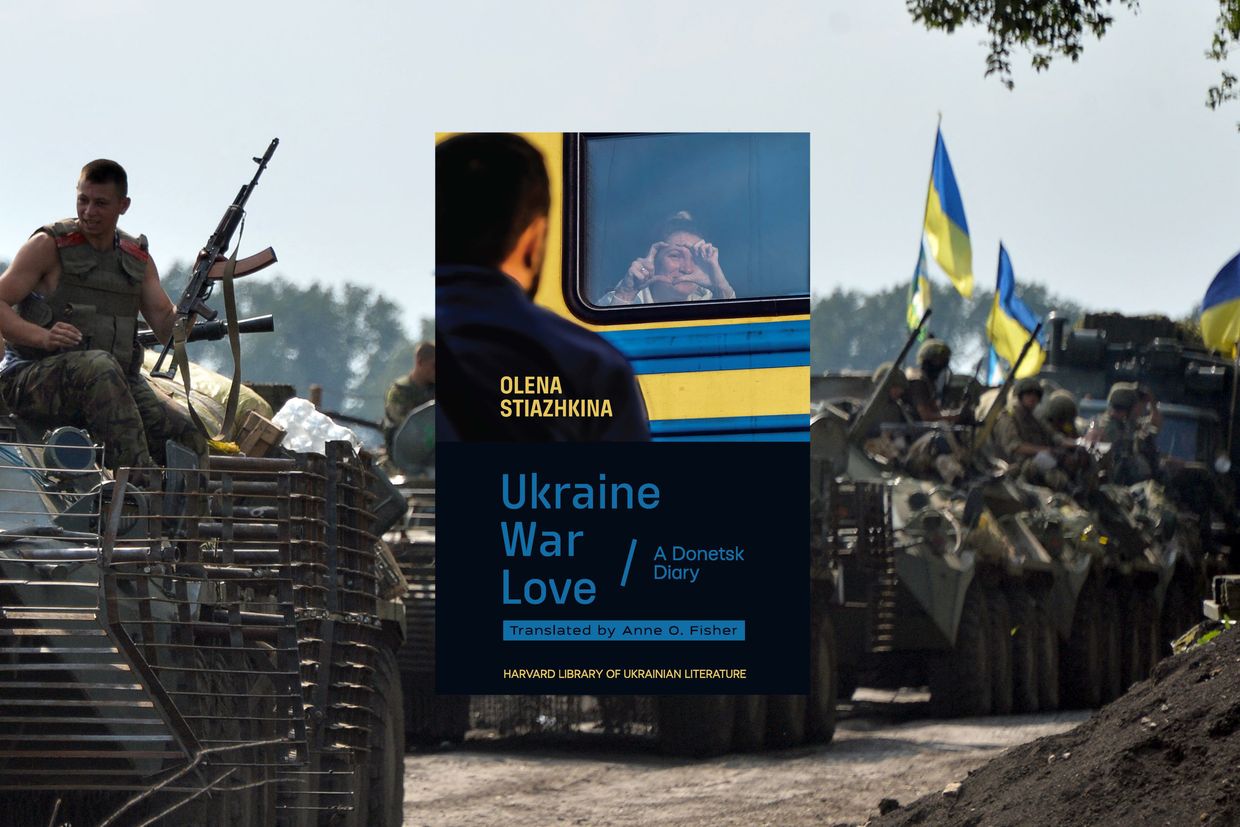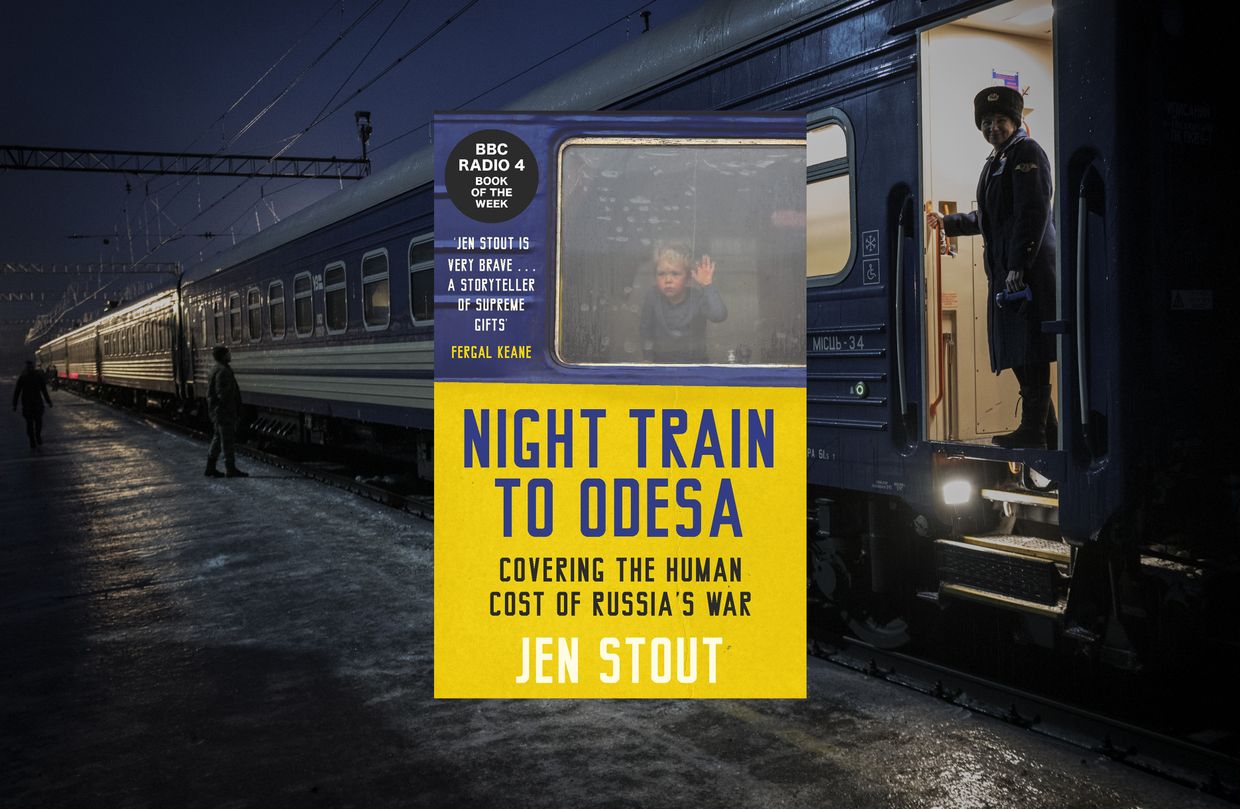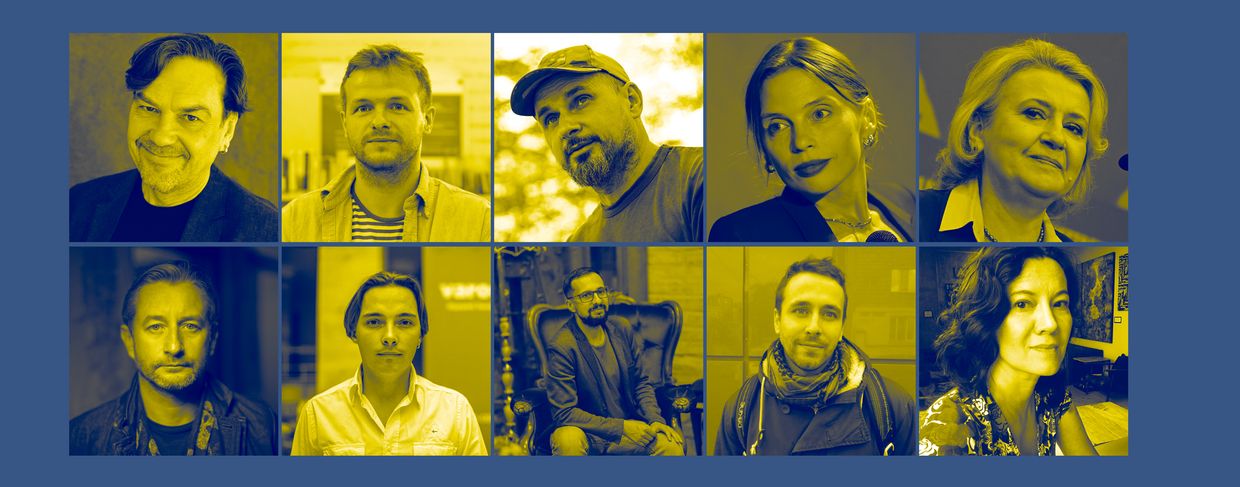Looking to read Ukraine-related books? We picked the best of 2024
Many books about Ukraine came out in 2024 — here are 10 of the best.

The Kyiv Independent’s picks for best Ukraine-related books of 2024. (The Kyiv Independent)
The year 2024 proved to be another landmark for books about Ukraine and Ukrainian literature in translation, with a continued trend in publishing in fiction, non-fiction, and poetry. Unsurprisingly, Russia’s ongoing full-scale war against Ukraine was the most common topic among these works.
Whether through incisive on-the-ground reportage that captures the suffering and fortitude of the Ukrainian people or through reflections on the historical forces that shaped the present moment, Ukraine-related publications in 2024 offered a rich and multifaceted portrait of the country. Read together, these works of prose and poetry invite English-language readers to engage with the story of the Ukrainian people in all its depth, complexity, and urgency.
The Kyiv Independent has curated a selection of the 10 most compelling books on Ukraine from 2024. This list serves as a guide rather than a definitive ranking, offering readers a foundation to engage with the year's literary highlights while anticipating the Ukraine-related publications slated for 2025.
“The Ukraine” by Artem Chapeye
Translated by Zenia Tompkins
Translated by Zenia Tompkins
A mix of fiction and creative nonfiction, the collective stories in Ukrainian author Artem Chapeye's "The Ukraine" deliver a colorful mosaic of contemporary Ukrainian life leading to the full-scale war. The title itself is a provocative rebuke of the common foreign misstep of referring to the country as “the Ukraine,” a phrasing that implies it is a borderland of Russia. Instead, Chapeye invites readers to discover the real Ukraine — his Ukraine. A perfect blend of humor and heartbreak, the collection portrays the everyday struggles of ordinary Ukrainians while also laying bare the historical and political divides that shape their world. Whether it’s the story of an elderly pensioner trying to sell vegetables on the street getting harassed by corrupt police or a western Ukrainian traveling to the east only to realize the country is not as divided as one would have them believe, each story unfolds as a microcosm of the Ukrainian people’s broader societal tensions and aspirations.
The characters in Chapeye’s stories are fully realized individuals that command a sense of dignity amid political uncertainty and systemic neglect. It offers a rare glimpse into the lives and dreams of those striving to reconcile a fractured past with an uncertain future, making it as timely as it is timeless.
“Forgottenness” by Tanja Maljartschuk
Translated by Zenia Tompkins
Translated by Zenia Tompkins
The unnamed narrator of Ukrainian author Tanja Maljartschuk’s novel “Forgottenness,” grappling with an agoraphobic episode, becomes consumed by the past, reading old newspapers in search of understanding time's relentless passage. Her journey leads her to Viacheslav Lypynskyi, a forgotten figure in Ukrainian history whose life she believes intersects with her own in unexpected ways. As she uncovers his role in Ukraine’s centuries-long fight for independence, the narrator begins to confront the intergenerational trauma that weighs upon her family's history, particularly the horrors of the Holodomor and Soviet repression.
The novel explores themes of national identity, memory, and the struggle to preserve one’s voice against the overwhelming forces of time. Through vivid storytelling and historical depth, “Forgottenness” asks: Can one truly escape the past, or is it destined to consume us all?
“Our Enemies Will Vanish” by Yaroslav Trofimov
Drawing on firsthand accounts from Ukrainian officials, soldiers, and civilians, Ukraine-born journalist Yaroslav Trofimov of the Wall Street Journal delivers a gripping chronicle of the full-scale war in “Our Enemies Will Vanish.”
From Russia’s unyielding refusal to negotiate to the world’s hesitation over Moscow’s so-called "red lines," the latter of which has consistently delayed critical military aid, Trofimov captures the extraordinary resolve of the Ukrainian people facing the threat of annihilation. With journalistic precision and deep empathy, Trofimov also documents some of the war’s darkest chapters, including the horrific mass executions uncovered in Bucha following Kyiv Oblast’s liberation and the bloody clashes in Bakhmut, Donetsk Oblast.
Beyond the enduring scars of documented Russian crimes, Trofimov highlights pivotal victories for Ukrainian forces, such as the liberation of southern Kherson and eastern Kharkiv oblasts. Trofimov’s masterful reporting is a testament to the power and importance of fearless, on-the-ground journalism.
“The Language of War” by Oleksandr Mykhed
Translated by Maryna Gibson, Hanna Leliv, and Abby Dewar
Translated by Maryna Gibson, Hanna Leliv, and Abby Dewar
In “The Language of War,” Ukrainian author and soldier Oleksandr Mykhed delivers a searing account of the first year of Russia's full-scale invasion, blending personal reflections with reportages. With raw intensity and poetic precision, Mykhed examines how the war has not only upended Ukrainian lives but also reshaped the very fabric of language, compelling Ukrainians to forge new expressions for navigating unimaginable grief, loss, and anger.
From recounting his parents' ordeal in Russian-occupied Bucha to reflecting on the generational trauma that conflict imprints, Mykhed crafts a profound and sobering narrative of war’s emotional toll. Deeply rooted in the centuries-long history of Russian aggression against Ukraine, “The Language of War” also captures the enduring weight of the past, along with Mykhed’s stark awareness that this terror may resurface within his lifetime.
“Ukraine, War, Love: A Donetsk Diary” by Olena Stiazhkina
Translated by Annie Fisher
Translated by Annie Fisher
Harvard’s Ukrainian Research Institute also published Ukrainian author Olena Stiazhkina’s novel “Cecil the Lion Had to Die” in 2024, but her diary chronicling the fall of Donetsk stands out as a deeply personal and vital testimony, shedding light on the roots of the current war from a local perspective.
Stiazhkina masterfully dismantles the Russian propaganda myth of a "people’s uprising against Kyiv," offering striking examples of how infiltrating Russians failed to convincingly pose as locals. Their unfamiliarity with the regional variations of spoken Russian in Donetsk compared to Russia exposed them as outsiders, as did their lack of knowledge about the city’s layout. The fall of Donetsk, Stiazhkina reveals, was not a sudden event but a creeping catastrophe, something many realized only when it was too late. Adding to this heartbreak was the betrayal of seeing former friends and neighbors align themselves with the enemy, deepening the wounds of occupation. Simultaneously, Stiazhkina's testimony is laced with dark humor — a hallmark of her writing and a shared sensibility among many Ukrainians who have endured over a decade of Russian aggression.
“Night Train to Odesa” by Jen Stout
Scottish journalist Jen Stout delivers a timely and necessary account of her experience covering the war in Ukraine. Her journey begins in Moscow before the full-scale invasion and takes readers from her reporting on Ukrainian refugees in Romania to the front lines in Donetsk.
At its core, the book is a powerful tribute to the resilience of the Ukrainian people, who, despite relentless Russian bombardments, continue to find ways to survive — and even to thrive. Stout also delves into the cultural shifts in cities like Odesa and Kharkiv, the emotional toll of journalists reporting from war zones, and the extraordinary contributions of Ukraine's cultural community in the face of crisis. With remarkable empathy and insight, she paints a portrait of Ukrainian society where unlikely alliances emerge — such as between the LGBTQ+ community and football ultras — driven by a shared fight for survival against Russian aggression.
“Night Train to Odesa” is an eye-opening, deeply human exploration of the unbreakable spirit of the Ukrainian people.
“The God of Freedom” by Yuliya Musakovska
Translated by Olena Jennings and the author
Translated by Olena Jennings and the author
Poetry is one of the cornerstones of Ukrainian literature, with works about war holding particular weight and significance. In her collection “The God of Freedom,” Ukrainian author Yuliya Musakovska delivers a powerful, haunting portrayal of life during wartime, where personal and collective struggles are inextricably linked. With vivid imagery and emotional depth, the poems navigate love, survival, and resilience against the relentless backdrop of war’s destruction. Musakovska’s verses do not shy away from the harsh reality that spurred them; they boldly confront the wounds inflicted by war while capturing the quiet heroism of healing.
This collection is both a mournful reflection and a resilient testament — its voice rises from the chaos, grounded in the unwavering belief that hope can endure.
“Chernobyl Roulette” by Serhiy Plokhy
The site of one of the most catastrophic disasters of the 20th century, Chornobyl (Ukrainian historian Serhiy Plokhy distinguishes in the book between “Chornobyl” for the abandoned city and “Chernobyl” for the site of the nuclear disaster of 1986) once again made international headlines when the iconic nuclear power plant fell under Russian occupation at the onset of the full-scale war in Ukraine.
Plokhy, widely regarded as the leading Ukrainian historian of our time, chronicles the harrowing events that unfolded as Russian forces advanced into Ukraine from Belarus. The nearly 300 personnel stationed at the plant — comprising firefighters, operators, and members of the National Guard — were taken hostage, forced to navigate a perilous new reality under the control of occupying forces. Compounding the danger, Russian troops dug trenches within the radioactive exclusion zone, seemingly oblivious to the grave health and environmental risks. Plokhy describes the temporary occupation of Chornobyl as an act of nuclear blackmail, serving as "a warning for the future” in a conflict-ridden world.
“Intent to Destroy” by Eugene Finkel
Ukraine-born historian Eugene Finkel's "Intent to Destroy" offers a compelling and nuanced examination of Russia’s war against Ukraine, tracing its origins beyond the full-scale invasion of 2022. The title itself is a reference to the definition of genocide, a topic which Finkel specializes in as a historian. The historian paints a chilling picture of the ongoing atrocities committed by Russian forces — murders of Ukrainian civilians and soldiers, forced relocations of thousands of children, destruction of cultural heritage, and torture under occupation — all of which are part of a centuries-long campaign by Russia to subjugate Ukraine. The turning point in Ukraine’s history, marked by its push for a democratic future during the 2014 Euromaidan Revolution, posed an existential threat to Russia. Yet, despite the dire threats of annihilation it imposed upon Ukraine thereafter, Ukrainians have stood firm in their fight for independence. Finkel’s work underscores the profound stakes of this ongoing struggle, reminding readers of the human cost and the broader geopolitical implications of the war.
“My Women” by Yulia Iliukha
Translated by Hanna Leliv
Translated by Hanna Leliv
A series of poetic vignettes narrated by Ukrainian women who have endured the ravages of Russia’s war, Iliukha’s “My Women” is a testament to the scars inflicted upon Ukrainian society.
One woman, a lifelong speaker of Russian and lover of Russian culture, finds herself buried under rubble from a Russian attack — it is presented as a cruelly ironic fate that silences her without regard for her love of Russian authors like Alexander Pushkin or Mikhail Lermontov. Another woman scours a mass grave for her husband’s distinguishing features, finding him at last when she recognizes the haunting smile of his wolf tattoo. A third woman, concealing the abyss of grief within herself, dons red lipstick as a fragile armor of beauty, only to face the whispers of neighbors who brand her shameless while her husband remains missing.
Simple yet brutal, these vignettes capture the fragility of wartime day-to-day existence. Iliukha masterfully conveys through spare yet evocative prose an unflinching glimpse into lives forever altered by the war.
Note from the author:
Hi, this is Kate Tsurkan, thanks for reading this article. There is an ever-increasing amount of books about Ukraine available to English-language readers, and I hope my recommendations prove useful when it comes to your next trip to the bookstore. Ukrainian culture has taken on an even more important meaning during wartime, so if you like reading about this sort of thing, please consider supporting The Kyiv Independent.

